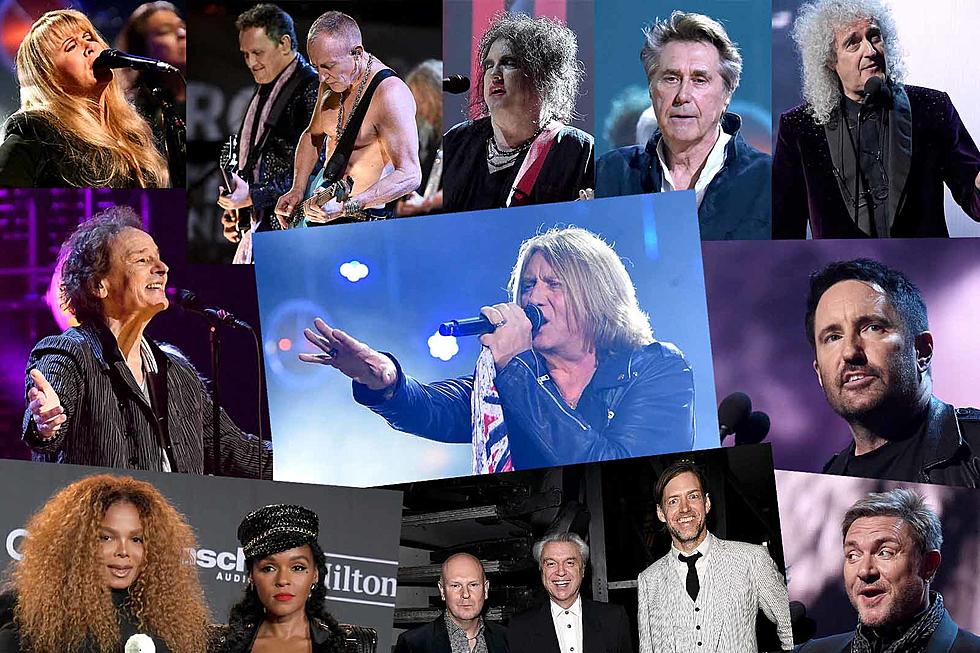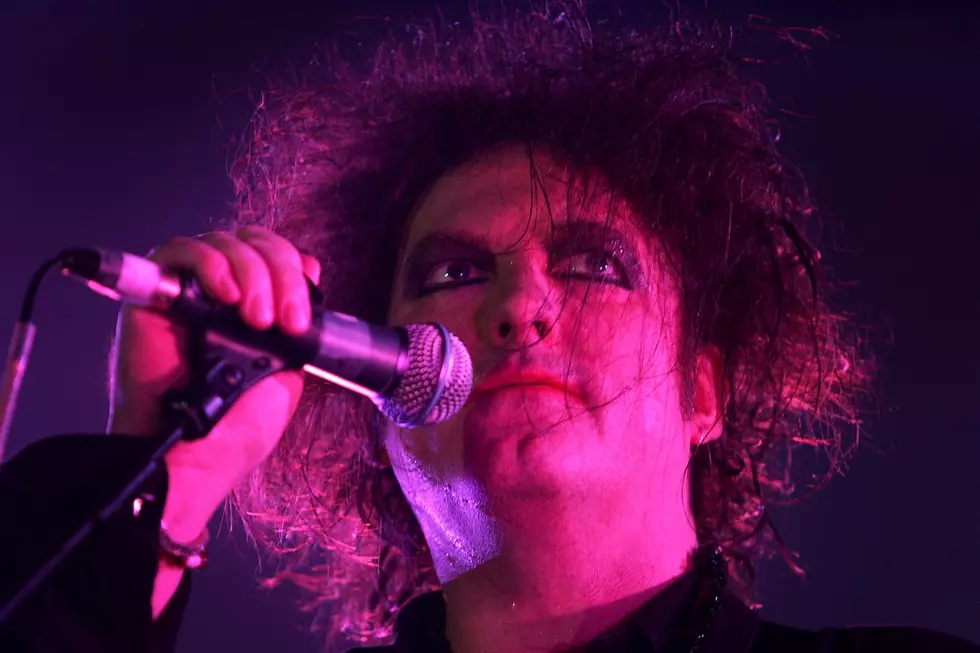
The Cure Inducted Into the Rock and Roll Hall of Fame
The Cure, one of the most influential post-punk bands of the '80s, have officially entered the Rock & Roll Hall of Fame. They were inducted by Trent Reznor of Nine Inch Nails during a ceremony tonight at the Barclays Center in Brooklyn, and they performed several of their classic songs.
"It's a nice surprise to be inducted," said Cure frontman Robert Smith from the stage, where he was accompanied by past and current members of the band, including Simon Gallup, Pearl Thompson and Lol Tolhurst. But Smith, who received a standing ovation, was the only one to speak. "There’s obviously been a lot of people who have played a part in the Cure, for better or for worse," he said.
Smith pointed out that "it doesn't seem that long" since the band's first album, even though it's been 40 years. He added that there were too many people to thank for the band's success over the years, but he made special mention of drummer Andy Anderson, who died last month, as well as the fans.
He then said he'd rather play some music, as the current band launched into "Shake Dog Shake" (from 1984's The Top). They then played "A Forest" (from 1980's Seventeen Seconds), "Lovesong" (their No. 2 single from 1989's Disintegration), "Just Like Heaven" and "Boys Don't Cry."
The band originally formed in Crawley, England, and released their first album in 1979. Eligible for induction since 2004, they'd been on the ballot only once before, in 2012.
It's been quite a journey. The Cure initially emerged from the British post-punk scene with a sparse, but aggressive, guitar-driven sound defined by the distinctive vocals of Smith, its lone constant member and guiding force. With 1980's Seventeen Seconds, the Cure began incorporating keyboards into their sound and their dark and gloomy lyrics, coupled with their image, lumped them in with the emerging goth movement.
Within a few years, however, they changed again showing off their versatility on a string of mid-'80s albums that made them stars in the U.S. thanks to hits like "Just Like Heaven" and "Lovesong." Still, as the most popular goth band, they never fully shed that tag. Smith later admitted he was never comfortable with that description, but he wasn't losing sleep over it, either.
"I'm not bothered on a personal level," he once said. "I don't worry about my epitaph, for instance. I don't want to be remembered for anything in particular other than being in a pop group that was good."
As with fellow inductees R.E.M., the Cure's platinum success wasn't the result of concessions to a wider audience, but rather bending the mainstream towards them. As a result, the Cure helped pave the way for the alternative revolution in the '90s: Their last Top 40 hit, the infectiously poppy "Friday I'm In Love," arrived in 1992 at the heart of the grunge movement.
"I think we made some kind of cultural change," founding drummer and keyboardist Lol Tolhurst later argued. "I think it's more than just selling records or filling concerts. I think that we made it allowable for people to be who they were. People say that to me, and I’m flattered and humbled every time I hear it – because you know, normally I’m like Groucho Marx: I wouldn't be in a club that would have me as a member. But I think we created our own club, and that's nice."
The 2019 Rock and Roll Hall of Fame Induction Ceremony will air April 27 on HBO.




